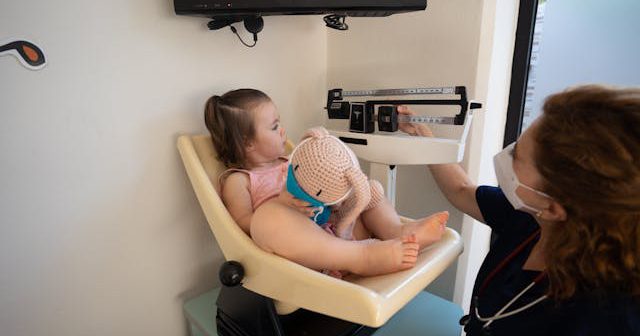Working with children in a healthcare setting requires a unique set of skills and approaches. Children are not just smaller adults; they have different physical, emotional, and psychological needs. For nurses, developing the ability to effectively communicate and care for young patients is crucial.
This article will explore practical ways nurses can improve their ability to work with kids, enhancing their professional practice and ensuring better patient outcomes. By focusing on specialized training, communication skills, and empathetic care, nurses can become more adept at providing high-quality care to children.
Specialized Training and Education
One of the most effective ways nurses can improve their ability to work with children is through specialized training and education. Pediatric nursing is a specialized field that requires a deep understanding of child development, pediatric diseases, and child-specific treatment protocols. This specialized knowledge is crucial because children are not just small adults; they have unique physiological and psychological needs that must be addressed differently than adults.
Enrolling in specialized courses or certification programs can provide nurses with the knowledge and skills needed to excel in pediatric care. These courses cover a broad range of topics, including the stages of child development, common pediatric illnesses, and the latest treatment strategies. Nurses learn how to manage the unique challenges associated with pediatric patients, such as communicating effectively with children of different ages, recognizing symptoms that may present differently in children, and providing comfort during medical procedures.
Apart from courses, nurses can also pursue advanced degrees that focus on pediatric nursing. Advanced education can enhance a nurse’s understanding of child-specific health issues, treatment plans, and communication strategies, which are crucial for providing effective care. For instance, many RN-BSN programs online offer courses specifically tailored to pediatric nursing. These programs allow nurses to gain in-depth knowledge and practical skills in a flexible and convenient format.
Building Strong Communication Skills
Effective communication is essential when working with children and their families. Children may not always be able to articulate their symptoms or feelings clearly, making it vital for nurses to develop strong communication skills tailored to young patients.
One key aspect of communicating with children is to use age-appropriate language. Nurses should avoid medical jargon and instead use simple, clear words that children can understand. For younger children, incorporating play and visual aids into explanations can help make complex concepts more relatable and less intimidating. For example, using dolls or toys to demonstrate a procedure can help a child understand what will happen and reduce their anxiety.
Developing Empathy and Patience
Empathy and patience are fundamental qualities for nurses working with children. Children may be scared, anxious, or uncooperative, especially in unfamiliar or painful situations. Demonstrating empathy and patience can help nurses build trust and create a positive, supportive environment for young patients.
Empathy involves understanding and sharing the feelings of others. For nurses, this means recognizing the fears and concerns that children may have about their health and treatment. By showing compassion and understanding, nurses can help children feel more comfortable and secure. Simple gestures, such as holding a child’s hand during a procedure or offering words of comfort, can make a significant difference in a child’s experience.
Patience is also crucial when working with children. Children may not always follow instructions or cooperate as expected, and it can take time for them to feel comfortable in a healthcare setting. Nurses should approach each interaction with a calm and patient demeanor, allowing children the time they need to process information and respond.
Utilizing Child-Friendly Techniques
Using child-friendly techniques can make medical procedures and treatments less intimidating for children, improving their overall experience and cooperation. Nurses should be creative and resourceful in finding ways to engage and comfort young patients.
Distraction techniques are particularly effective in reducing anxiety and discomfort during procedures. Providing toys, books, or electronic devices can help divert a child’s attention and make the experience more manageable. Some hospitals have child life specialists who can assist with distraction and play therapy, making the process smoother for both the child and the nurse.
Involving children in their care can also be beneficial. Allowing them to make simple choices, such as selecting a bandage color or choosing the order of procedures, can give them a sense of control and reduce their anxiety. Explaining procedures in a fun and engaging way, using stories or games, can also help children understand what to expect and feel more at ease.
Positive reinforcement is another valuable technique. Praising children for their bravery and cooperation, even for small achievements, can boost their confidence and make them more willing to participate in their care.
Creating a Child-Friendly Environment
The physical environment in which children receive care can significantly impact their comfort and anxiety levels. Creating a child-friendly environment involves making the healthcare setting as welcoming and non-threatening as possible.
Bright, cheerful colors, engaging murals, and child-sized furniture can make a healthcare setting more inviting for children. Waiting areas equipped with toys, books, and games can help keep children occupied and reduce their anxiety while they wait for their appointment.
In the examination and treatment rooms, having familiar and comforting items, such as stuffed animals or blankets, can help children feel more secure. Allowing children to bring their favorite toys or comfort items from home can also make the experience less intimidating.
Healthcare facilities can also implement child-friendly policies, such as flexible visiting hours for parents and caregivers, to provide additional support and comfort for young patients. Ensuring that healthcare providers are trained in pediatric care and child-friendly techniques can further enhance the overall experience for children and their families.
Conclusion
Improving the ability to work with children is essential for nurses who wish to provide high-quality pediatric care. By pursuing specialized training and education, building strong communication skills, developing empathy and patience, utilizing child-friendly techniques, and creating a welcoming environment, nurses can enhance their practice and ensure better outcomes for young patients.
These strategies not only improve the care experience for children but also build trust and rapport with their families, making the healthcare journey smoother and more positive for everyone involved.




